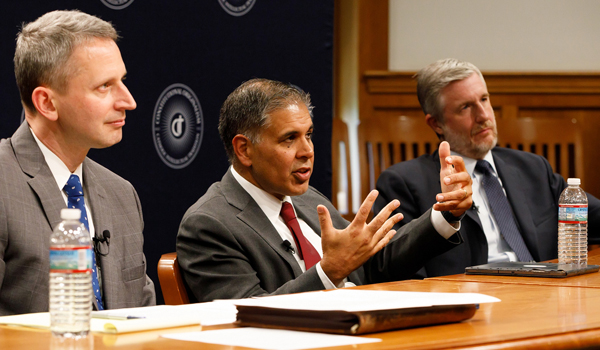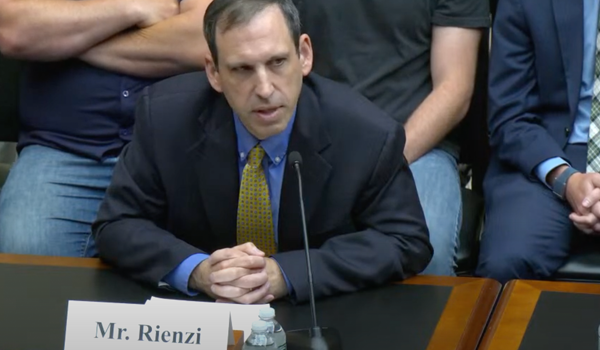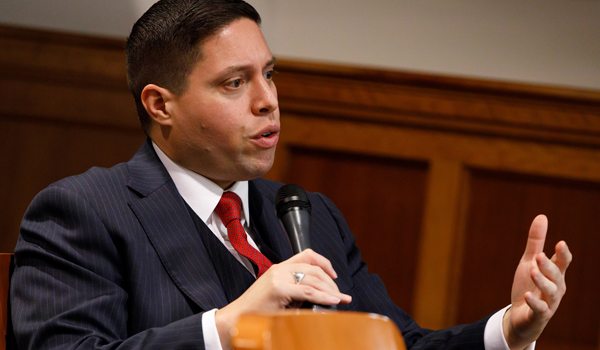 The faculty at Catholic Law are deeply committed to excellence in teaching, scholarship, and service. Renowned experts in their respective fields, they bring a wealth of knowledge and practical experience to the classroom, inspiring students to excel both academically and professionally. These accomplished professionals are frequently invited as prominent speakers, commentators, and contributors to national and international legal discussions, further solidifying their influence in the legal community.
The faculty at Catholic Law are deeply committed to excellence in teaching, scholarship, and service. Renowned experts in their respective fields, they bring a wealth of knowledge and practical experience to the classroom, inspiring students to excel both academically and professionally. These accomplished professionals are frequently invited as prominent speakers, commentators, and contributors to national and international legal discussions, further solidifying their influence in the legal community.
Catholic Law's Centers and Institutes provide students with unique opportunities for academic and professional growth, including guest lectures from leading legal minds, research scholarships, hands-on clinical experiences that prepare students for real-world legal practice, and engaging conferences that explore current and emerging legal issues. Together, these resources create an enriching environment where students can thrive and make meaningful connections within the legal field.
The Catholic Law aims to achieve distinction in the Catholic intellectual tradition and to promote the ideals of the dignity of each human person, respect for the inviolability of all human life, justice rooted in the common good, the recognition and protection of human rights as gifts of the Creator, care for the poor, the neglected, and the vulnerable, and the obligation of love for one another.
The Center for Law and the Human Person serves as our central resource for thinking about how these core commitments ought to inform the study, teaching, and practice of law. The Center will support relevant scholarly research and curricular development, emphasize student formation, and engage broader academic, professional, and public policy communities.
 The Center for Religious Liberty at The Catholic University of America Columbus School of Law, is an academic center dedicated to the study and articulation of the Catholic approach to religious liberty as a fundamental human right for all persons, regardless of faith. This right is recognized by the United States Constitution, the Universal Declaration of Human Rights, and the Church's teaching in Dignitatis Humanae.
The Center for Religious Liberty at The Catholic University of America Columbus School of Law, is an academic center dedicated to the study and articulation of the Catholic approach to religious liberty as a fundamental human right for all persons, regardless of faith. This right is recognized by the United States Constitution, the Universal Declaration of Human Rights, and the Church's teaching in Dignitatis Humanae.
The Center will aim to increase discussion and understanding of these issues by hosting speakers, organizing conferences, awarding writing prizes, providing educational programming, and commenting on religious liberty issues in the public square.
 The Center for the Constitution and the Catholic Intellectual Tradition (CIT) promotes scholarship that explores the relationship between the Catholic intellectual tradition and American constitutionalism. That tradition is deep and rich, including philosophical and theological accounts of law and politics by such figures as St. Augustine and St. Thomas Aquinas. Although the Center’s primary focus is on theories of constitutional law, such as originalism, CIT’s ambit is broad and covers the relevance of the Catholic intellectual tradition for constitutional history, doctrine, and other fields of study.
The Center for the Constitution and the Catholic Intellectual Tradition (CIT) promotes scholarship that explores the relationship between the Catholic intellectual tradition and American constitutionalism. That tradition is deep and rich, including philosophical and theological accounts of law and politics by such figures as St. Augustine and St. Thomas Aquinas. Although the Center’s primary focus is on theories of constitutional law, such as originalism, CIT’s ambit is broad and covers the relevance of the Catholic intellectual tradition for constitutional history, doctrine, and other fields of study.
The Separation of Powers Institute (SPI) intends to promote scholarship, student-geared programming, and educational initiatives that examine the federal constitutional structure—with an emphasis on a historical understanding of the role of divided power in the preservation of “justice,” the “general welfare,” and “the blessings of liberty.” SPI will serve as a hub of academic research and debate on legal and constitutional questions related to the role of the three federal branches of government and the allocation of their role and functions within the federal constitutional system.
 Named for St. Josephine Bakhita, the patron saint of human trafficking victims, the Bakhita Initiative for the Study and Disruption of Modern Day Slavery engages in legal research and education to effectively combat modern slavery. The Initiative’s two broad goals include research and educating the next generation of attorneys to be equipped to advocate on behalf of trafficking victims in the courtrooms and boardrooms across the country.
Named for St. Josephine Bakhita, the patron saint of human trafficking victims, the Bakhita Initiative for the Study and Disruption of Modern Day Slavery engages in legal research and education to effectively combat modern slavery. The Initiative’s two broad goals include research and educating the next generation of attorneys to be equipped to advocate on behalf of trafficking victims in the courtrooms and boardrooms across the country.
 The Immigration Law and Policy Initiative [ILPI] aims to advance teaching, interdisciplinary research, fact-finding, policy reform, and advocacy to protect the rights and dignity of individuals fleeing their home countries and seeking refuge in the U.S. The Initiative recognizes the Catholic Church’s leadership on migration issues worldwide and seeks to contribute to the Church’s efforts to advance the human rights of all individuals regardless of citizenship or national origin. The Initiative also aims to motivate the Catholic University community to grapple with the challenges of migration in response to Pope Francis’ call for Catholic universities to “educate their own students… to a clearer understanding of the phenomenon of migration, within a perspective of justice, global responsibility, and communion in diversity.”
The Immigration Law and Policy Initiative [ILPI] aims to advance teaching, interdisciplinary research, fact-finding, policy reform, and advocacy to protect the rights and dignity of individuals fleeing their home countries and seeking refuge in the U.S. The Initiative recognizes the Catholic Church’s leadership on migration issues worldwide and seeks to contribute to the Church’s efforts to advance the human rights of all individuals regardless of citizenship or national origin. The Initiative also aims to motivate the Catholic University community to grapple with the challenges of migration in response to Pope Francis’ call for Catholic universities to “educate their own students… to a clearer understanding of the phenomenon of migration, within a perspective of justice, global responsibility, and communion in diversity.”